Rak zabija kobiety w mojej rodzinie od lat. Nie chcę być następna.
Katarzyna Czapska, Warszawa,
numer zbiórki: 111194
Opis zbiórki
Rak zabrał moją Mamę i Babcię - najbliższe mi kobiety. Nigdy nie pytałam, czy przyjdzie i po mnie, pytałam tylko „kiedy”? Miałam 15 lat, gdy zaczęłam na niego czekać i bać się, taka była moja codzienność przez 20 lat. Teraz trwa moja walka z rakiem piersi… Nie chcę odchodzić, chcę walczyć i żyć, potrzebuję pomocy.
Najpierw umarła babcia, miałam wtedy 15 lat i byłam dziewczynką poznającą swoją kobiecość. Musiałam pogodzić się z tym, że ta kobiecość niesie ze sobą wyrok, że nie mogę uratować babci, że ona odejdzie już, teraz, a ja? Ja otrzymam w spadku okrutną, śmiertelną chorobę. Pierwszy rzut choroby to ziarnica, wyczułam guzki na szyi. Przerażenie, biopsje, diagnozy, operacje, radioterapie. Gorycz, bo przekraczasz dwudziestkę, walcząc i wiedząc, że to nie koniec, że właśnie tak będzie wyglądało Twoje życie, jeśli przeżyjesz… Wtedy wymknęłam się śmierci, ale pacjentką Centrum Onkologii zostałam na stałe.
Moja mama odeszła kilka lat temu. Rak jajnika nie dał jej najmniejszych szans. Kiedy spędzałam z nią ostatnie wspólne tygodnie, wypełnione bólem, rozpaczą i pytaniem „dlaczego?”, doświadczyłam siły tej choroby. Teraz moja kolej, teraz ja odczuwam to wszystko na własnej skórze.
Zawsze przykładnie badałam piersi, latem wyczułam zgrubienie pod skórą. Jakby pryszcz, groszek. Konsultacje i nadzieja... Ja naprawdę miałam jeszcze nadzieję, że to niegroźna cysta, tłuszczak, może torbiel. Mammografia - niejasność. Biopsja - rak, ale do wyleczenia. Konsylium - wyrok, potrójnie ujemny rak piersi, najbardziej złośliwa forma nowotworu, tylko 10 - 15% chorych ma tę mutację, w tym ja.
Na tę formę raka nie ma jednoznacznie skutecznego lekarstwa, są podejmowane próby leczenia, podejścia… Jest załamanie, płacz, życie postawione na głowie. Zaręczyny, plany na święta, praca? To wszystko muszę odłożyć na bok. Muszę się zmobilizować, myśleć jasno i mądrze planować: lekarze, konsultacje, kolejki, rozmowy z fundacjami, kontakty i przygotowania. Koszty… Działać trzeba już, od razu, bo mój rak lubi przerzuty, rozwija się szybko, jest wyjątkowo agresywny. Muszę ograniczyć ryzyko przerzutów, wzmacniać swój organizm. Pierwszą chemię, najostrzejszą i częstszą niż standardowo, mam już za sobą.
To były 2 okropne miesiące ciężkiej czerwonej chemii, 2 wyrwane z życiorysu miesiące, o których bardzo chciałabym zapomnieć. Potem krótka przerwa i dogrywka - pół roku kolejnej chemioterapii. Jestem słaba, nie mam już włosów, za kilka miesięcy nie będę miała też piersi. Rak szybko odbiera siły i ukochanych ludzi, zbyt szybko. To dzieje się błyskawicznie: diagnoza, badania, pierwsze wlewy chemioterapii i jesteś już w innej rzeczywistości. Słabniesz, inaczej chodzisz, inaczej jesz, inaczej śpisz, nawet inaczej odczuwasz smaki i zapachy, inaczej wyglądasz, a wszystkie twoje myśli krążą wokół tego, co zrobić żeby przeżyć. Przypominam sobie, co robiłam ratując mamę i babcię, jak pomagałam im, jakich błędów mogę uniknąć, dokąd dzwonić, jak prosić o pomoc. Tak długo się bałam, czasem myślałam, że jestem przygotowana na wszystko – nie byłam, nie można się na to przygotować. Nie chcę milczeć i udawać, że świetnie radzę sobie sama, boję się i potrzebuję pomocy.
Chcę, żeby moje leczenie zależało od mojej formy psychicznej i fizycznej, od moich sił, moich działań, a nie od tego, czy wystarczy mi pieniędzy na leczenie. Nie chcę, żeby strach, że nie stać mnie na leki, paraliżował mnie w walce o życie. Immunoterapia – mimo pozytywnych rezultatów u pacjentów z nowotworami takimi, jak mój – nie jest ciągle w Polsce szeroko dostępna i refundowana. Dla mnie, w przypadku przerzutów po zakończeniu chemioterapii, może się okazać jedyną nadzieją. Koszt 250 000 złotych…
Teraz potrzebuję i będę potrzebowała mnóstwa leków wspomagających, osłonowych. Muszę dbać o dietę, żywność silnie antyoksydacyjną, wsparcie psychologiczne, żeby nie stracić nadziei, siły psychicznej. Do tego rehabilitacja, żeby dojść do siebie po 2 lub 3 operacjach, które mnie czekają, rekonstrukcja po amputacji piersi. To są koszty walki o życie, trudnej próby, którą podjęłam i którą chcę wygrać. Rak zabija kobiety w mojej rodzinie od pokoleń, ja nie chcę być jego kolejna ofiarą.
Cancer has already claimed the lives of my mother and grandmother - the two women dearest to me. It was never a question of if it would come for me too but when. From the age of 15, I began to fear for my life, and the next 20 years, this looming calamity has been part of it. My fight against breast cancer is my reality, and I don’t want to give up. I want to fight and live, and I need help.
My grandmother died first while I was a teenager and just as I was exploring my femininity. I had to come to terms with the fact that this femininity carries a sentence that I can’t save my grandmother and that her fate had already been sealed. I, on the other hand, would receive a cruel, lethal disease as an inheritance. The first encounter with the sickness was the Hodgkin lymphoma. One day I felt lumps on my neck. Immediate shock, followed by biopsies, diagnoses, operations and radiotherapy. Bitterness, because you are over twenty years old fighting and knowing that it is not the end of it. Coming to terms with the fact that most probably this is what your life will be like if you survive. Back then, I escaped death, but I’ve become a patient of the Oncology Clinic permanently.
The next blow was my mother, who passed away a few years ago. Ovarian cancer didn’t give her the slightest chance. I accompanied her in the final weeks that were full of pain, despair, and the constant question “why?” I had the first-hand experience of the brutality of this disease. Sadly, it has now come my turn to face a dramatic and uneven fight to preserve my future.
Being aware of the risks, I have always taken prevention very seriously by frequently examining my breasts, running the recommended tests, scheduling regular ultrasounds. Last summer, at 36, I felt a small lump under my fingertips, a tiny pimple the size of a pea. That sounded the alarm in my head. Next came consultations and clamouring of hope that perhaps it was just a harmless lipoma or a cyst. Further tests and mammography had indecisive results. Biopsy provided a preliminary diagnosis – it’s cancer, but a curable one. The medical case conference gave the final verdict - triple-negative breast cancer, the most malignant form of breast cancer with this particular mutation present in only 10-15% of patients, including me.
There is currently no effective cure for this form of cancer, and it is unfortunately likely to return after remission. Naturally, at first, came the feeling of despair and tears streaking down my face, my life had instantly been turned upside down. Earlier commitments planned vacation and exciting work prospects all of a sudden had to be set aside.
I had to find inner strength, think clearly and act wisely: doctor appointments, endless consultations, queues, hours spent on research, contacting oncology foundations, making arrangements and preparations for what was about to come. The added worry about the state of my finances as the related expenses began to mount exponentially. I knew I had to take action urgently because my cancer type tends to metastasise; it proliferates and is extremely aggressive. To give myself the highest chance of survival, by all possible means, I had to minimise the risk of it spreading to other organs of my body.
Thus, the treatment started immediately with chemotherapy, the strongest there is and more frequently administered than what the standard schedule would generally be. These were two terrible months of heavy ‘red’ chemo, two months out of my life that I would have loved to forget. Then a short break to recover from the severity of what my body had to endure to kill the cancer cells, but also from the damage inflicted on the rest of the system in the process. The short break was a catch of breath to help regain strength before the next round of chemo would aim at getting rid of the tumour remains. What followed were another few months of weekly chemo administered through IV. I am weak, I have lost all my hair, and in a few more months, I will lose my breasts as well. A double mastectomy is the next step in an attempt to stop the vicious cancer from taking over my body and claiming my life.
This awful disease can strip us of our dreams, hopes and expectations, and it can take our beloved people away from us too quickly. When faced with this challenge, everything happens rapidly - the diagnosis, the various tests and exams, the first infusions of chemotherapy, the concern on the faces of those who care about you. In an instant, you are in a complete and foreign reality of battling for your survival. You lose your energy and tire quickly, you start walking differently, and you even eat unusually. The types of food you used to enjoy do not agree with your exhausted body, and you struggle to sleep at night; all five senses change along with your feelings and thoughts. You barely recognise yourself in the mirror. All your thoughts revolve around how to increase your odds of survival. I remember what I was doing to save my mother and grandmother, how I supported them, what mistakes I now know I had made, I have a better understanding of the process, I know whom to approach and how to ask for help. I had been afraid of this happening for such a long time, and sometimes I thought that I was actually prepared for it, but I was wrong. Nothing and no one can prepare you for this. I do not want to keep silent and pretend that I am doing great on my own, because the truth is - I am scared, and I do need help.
I want my treatment to depend on my mental and physical form, on my strength and perseverance, on my actions and not on whether I have enough money to get myself the best treatment. I would hate if the worry that I may not be able to afford the required medication were to paralyse me in the fight for my life. Immunotherapy - despite positive results in patients with cancers like mine - is still not widely available, and sadly, it is always not refunded through the public healthcare system in Poland. If cancer metastasises after the end of chemotherapy, immunotherapy may be the only hope. The price tag can be very high – approx. 250,000 PLN (EUR 60000)
All I need now is a range of supportive and protective medicines. I am also rigorously following a healthy diet, filled with antioxidant foods, receiving psychological support to maintain mental strength, which is vital to the success for oncological patients like me. In addition, I will require rehabilitation to recover after two or three surgeries that will await me in the whole process, including reconstruction after breast amputation. These are some of the associated costs with my struggle for life.
It is a challenging test for me, which I really want to pass.
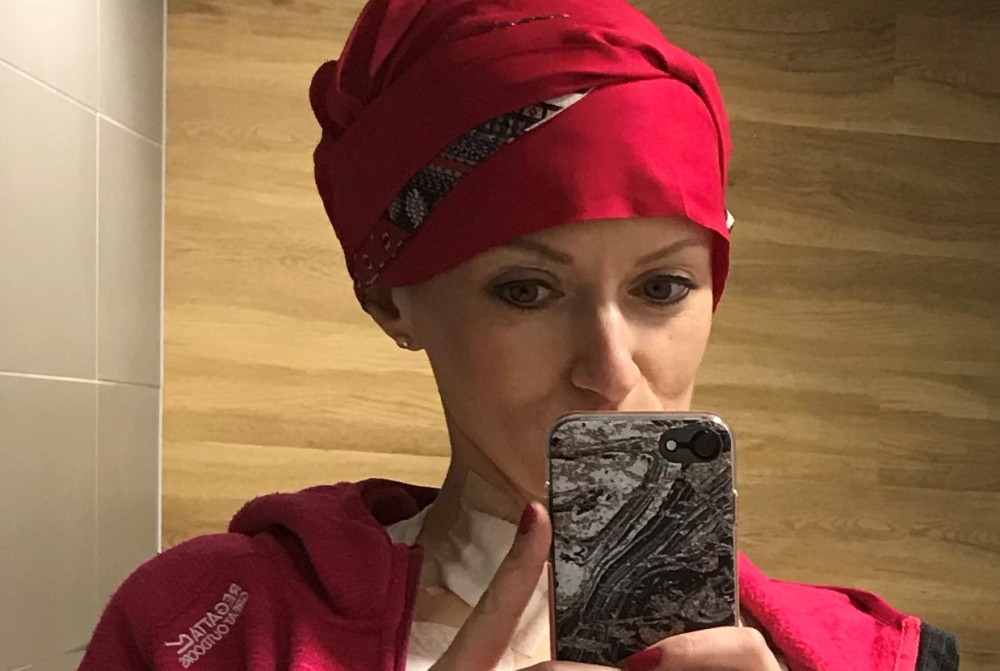

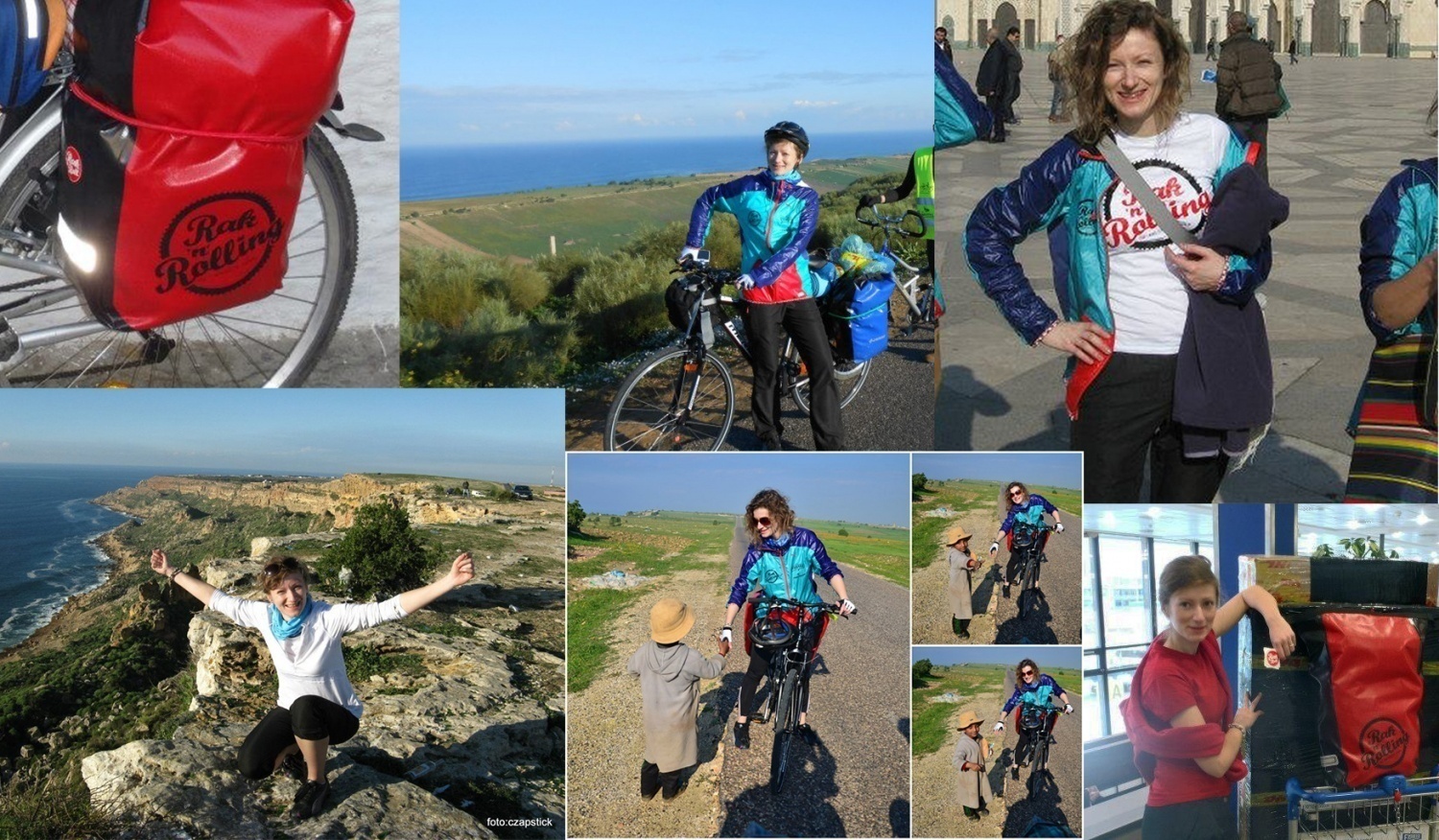
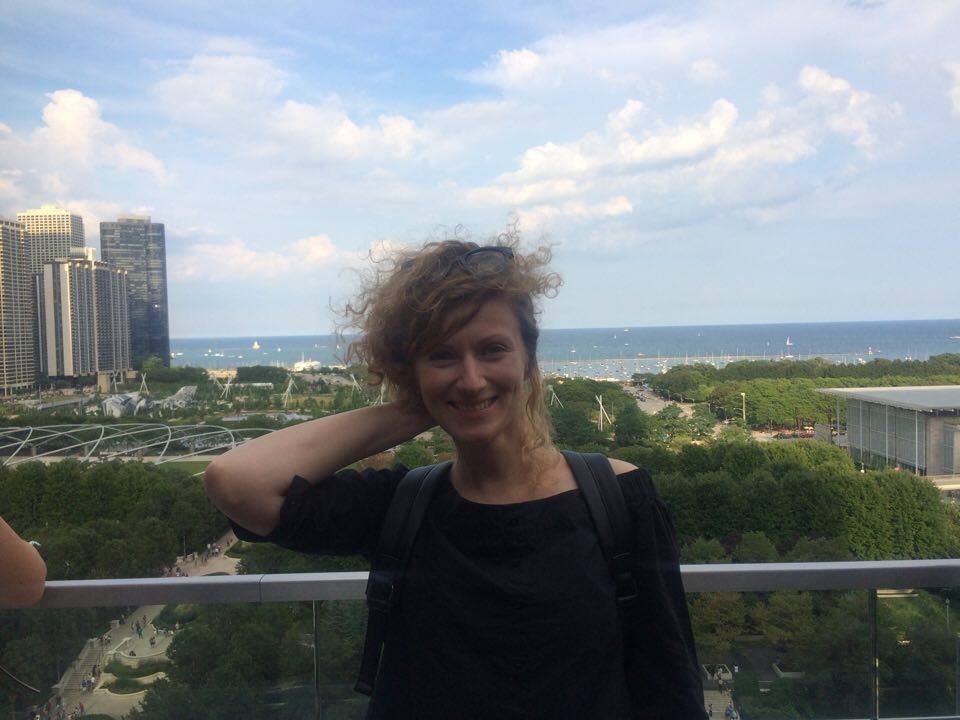
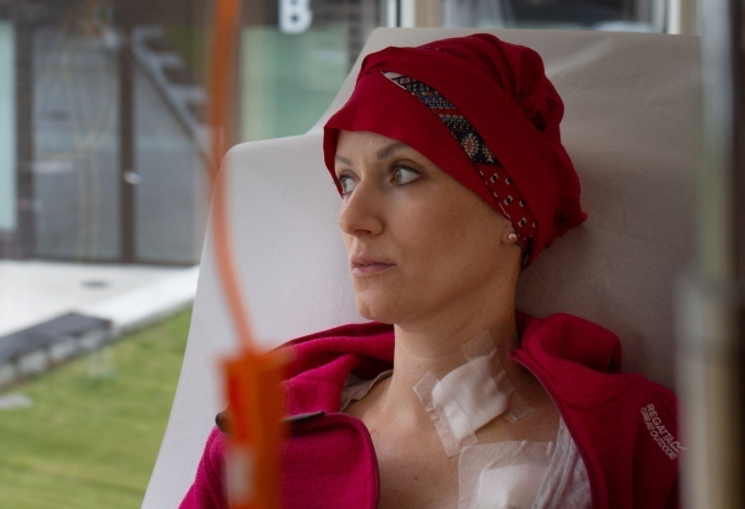
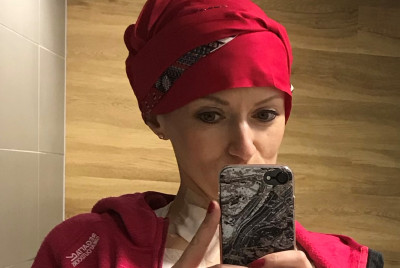

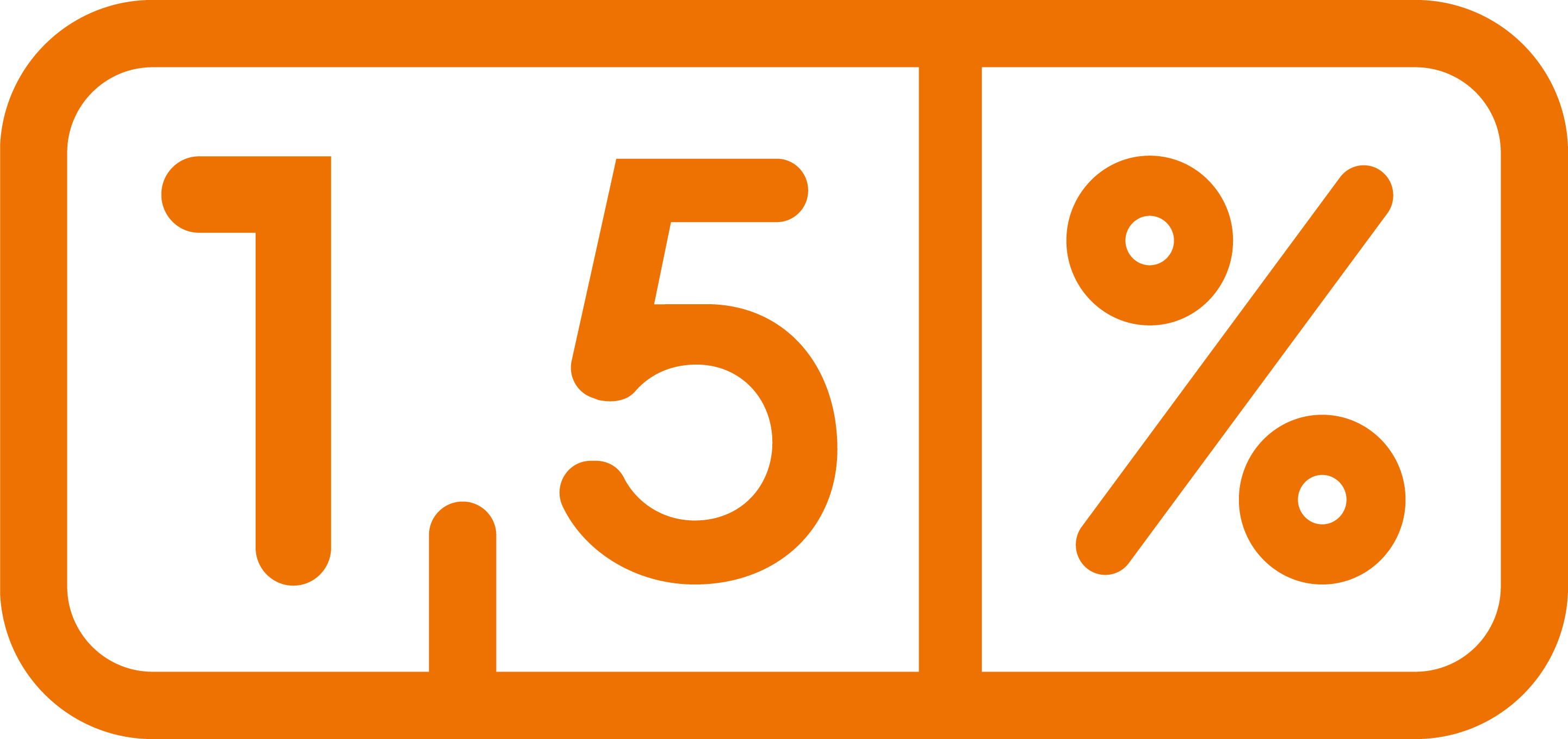
Słowa wsparcia